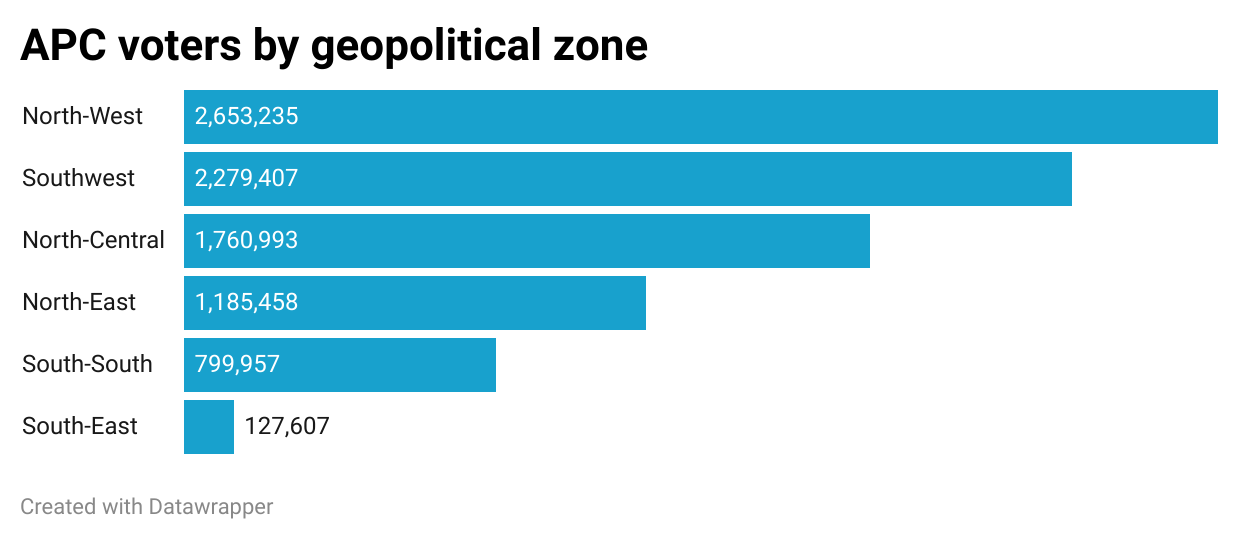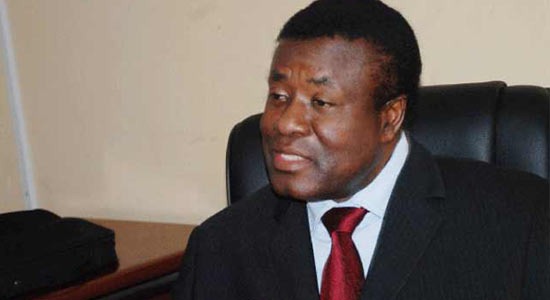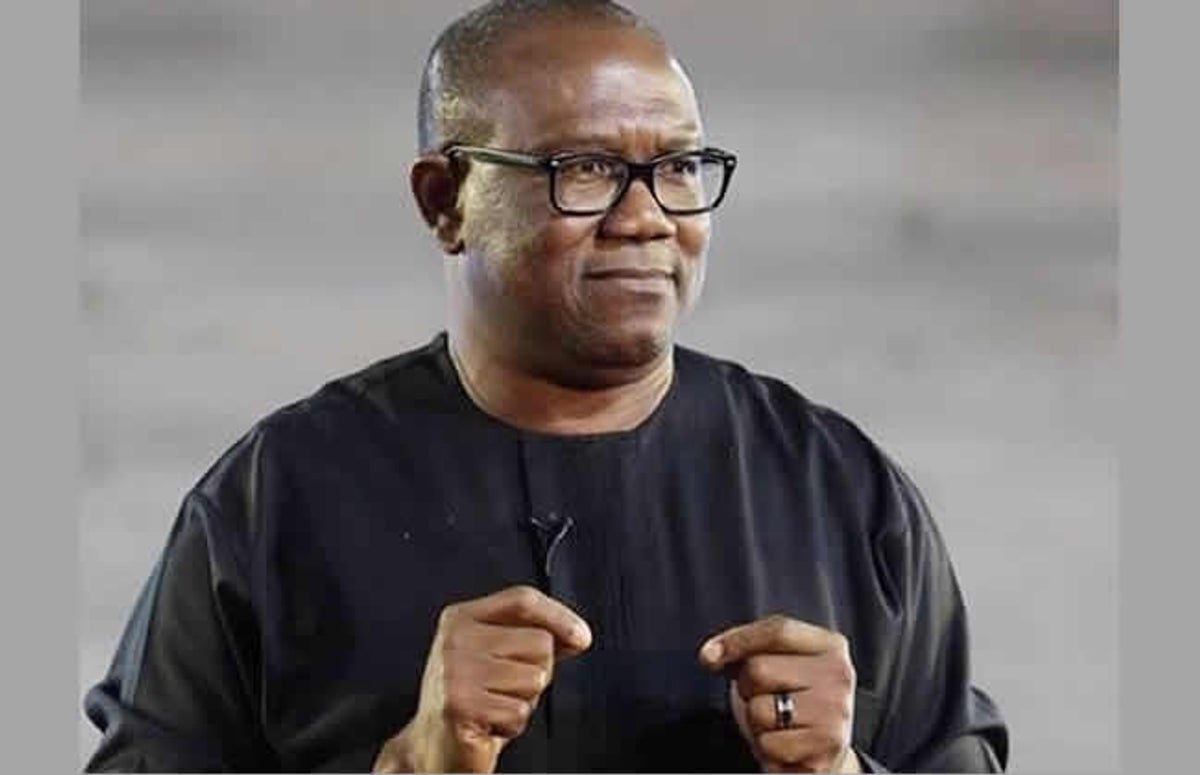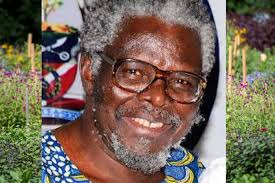Tinubu, power-sharing and North-West ex-governors

Key Points:
-
In Katsina Masari and his team overcame image of insecurity to garner votes for Tinubu
-
North-West political leaders expected the Vice-Presidency
-
The geopolitical zone gave the highest number of votes to Tinubu
-
Barau, Yari insist on Senate Presidency because of North-West’s contributions to Tinubu victory
-
Several choice ministerial positions may go the way of North-West ex-governors
By Clement Adeyi
In the 2023 elections, the All Progressives Congress (APC) was the unlikely party to win votes in Katsina State, where insecurity in rural areas has made life unbearable for the people. Though Katsina is the home-state of President Muhammadu Buhari, bandits and terrorists disrupted the peace of the North-West state throughout the eight years that Buhari has been president and commander-in-chief of the armed forces.
As many as 18 local governments were oppressed by bandits, as at 2021. The affected local government areas were Batsari, Safana, Jibia, Danmusa, Sabuwa, Kankara, Dandume, Faskari, Dutsinma, Kurfi, Batagarawa, Rimi, Danja, Kafur, Matazu, Kankia, Malumfashi and Katsina metropolis. The activities of bandits were seen as evidence of failure on the part of the APC-led federal government, who may not garner votes from the state in the 2023 presidential and even governorship elections. Insecurity in Katsina State provided enough contents for political rhetoric among political strategists who planned to dislodge the APC from power at both federal and state levels.
It was, therefore, by hard work and uncommon strategic planning that Katsina State Governor Aminu Masari delivered the number of votes garnered in the troubled state for the APC. In spite of the negative image that insecurity gave the APC, Masari and his team convinced the people to give the party 482,283 to come second, losing only about 7,000 votes to the PDP forces who had thought that winning Katsina State was like a thoroughfare for the opposition. For one, the PDP had many political chieftains, many of them nationally-acclaimed, like former Governor Ibrahim Shema, who was once the Deputy National Chairman of the PDP. Against all odds, the team put together by Masari was able to puncture the efforts made by the PDP to take Katsina State.
The tough battle fought in Katsina State was replicated in almost all North-West states, including Zamfara, Kaduna, Jigawa, Sokoto, Kebbi and Kano. In all these states, except, Kano State, the bloodshed and suffering among poor peasants in rural areas made the region the unlikely place for the APC to garner the kind of votes that propelled Tinubu to victory. From the exploits made by the NNPP in Kano State, and in-roads made by the PDP in many parts of the North-East, it was clear that without the dexterity of North-West governors, the APC would have lost the elections, and there would have been a good excuse for it – insecurity in the region and across Nigeria.
It is for this reason that all eyes are on President-elect Bola Ahmed Tinubu about power-sharing, now that the most fiercely contested presidential election in the country has been lost and won. There are six geopolitical zones in Nigeria from where political tacticians and strategists laboured in the political factory to fashion out victory for Tinubu. Perhaps, two of the political zones, South-West and North-East, from where the president-elect and his deputy hail, are satisfied with the two big prizes. Political leaders who worked for the All Progressives Congress (APC) in other geopolitical zones are waiting with anxiety as to how they will be compensated.
The North-West, especially, may be angling for a huge slice of the pie, considering its political history. In this political dispensation, it has produced either the president, vice-president or choice ministers in government. For instance, in the Fourth and Fifth Republics, the North-West produced the Speakers of the House of Representatives. In the Sixth Republic it produced the President, in the late Umaru Musa Yar’Adua. In the Seventh Republic, the North-West produced Vice-President Namadi Sambo, while in the Ninth and Tenth Republic, it held the position of president, as Muhammadu Buhari won the presidential elections in 2015 and 2019.
Tinubu, as a political tactician, is not ignorant of the need to carry along those who worked for him to secure victory in the North-West
In fact, after Tinubu won the party’s presidential ticket in 2022, political strategists came up with an argument that if he must win the presidency, Tinubu must choose his running mate from the North-West. At that time, the names of several serving North-West governors, as possible deputy to Tinubu, were canvassed. However, Tinubu took the political risk to pick a former Governor of Borno State, Senator Kashim Shettima, as his running made.
It is not difficult to establish why the North-West always feature in political power sharing; the voting population is high, so also is the political consciousness in the sub-region. In the 2023 election, for instance, the North-West was the battleground, as all the major political parties, especially the APC, Peoples Democratic Party (PDP), New Nigerian Peoples Party (NNPP), and to some extent, Labour Party (LP), made a deliberate attempt to woo voters from the region.
The fact that the presidential flagbearer of the NNPP, Rabiu Musa Kwankwaso, hails from Kano, one of the most populous and politically active states in the North-West, created a stumbling block for other political parties, as in the current political dispensation, Kwankwaso has proved to be a veritable political force among the youths, with his Kwankwasiya Movement.
The situation was somehow worse for the APC. First, Tinubu is not from the North, though a Muslim. Also, the fact that his running mate is not Hausa/Fulani, but Kanuri from the North-East, placed him as another layer of disadvantage.
The PDP’s presidetial candidate, Atiku Abubakar, a Muslim from the North, was seen as the candidate the conservative North-West would readily support, providing enough data for bookmakers to envisage a big loss for the APC in several North-West State. However, the results from the polls was to the contrary. The chart below shows how the North-West powered Tinubu to the presidency, according to results declared by the Independent National Electoral Commission (INEC). From INEC’s data, the North-West generated 2.6 million out of the eight million votes that gave Tinubu the edge over one the North’s political heavy weight, Atiku Abubakar. The result he garnered from the North-West is higher that Tinubu’s total votes from his South-West political base, where he got 2.2 millions votes, and was beaten to the second position by Labour Party’s Peter Obi in the commercial city of Lagos.

It is for the difficulty involved in the process of delivering the North-West for Tinubu that some North-West senators-elect are insisting that they should be entitled to the position of Senate President. For instance, the senator-elect from Kano North, Jibrin Barau, while throwing his hat in the ring to contest for Senate Presidency, used the contributions of the North-West to Tinubu’s declared victory as his reason.
Senator-elect Barau has a lot of supporters for his ambition, though the mood of the nation which is against the top three positions in Nigeria being taken by Muslims, does not align with his ambition.
Not giving up, another North-West candidate, Abdul-Aziz Yari, has emerged as a contender for the Senate Presidency from the North-West state of Zamfara.
Senator-elect Barau has a lot of supporters for his ambition
His argument is that the region gave Tinubu more votes at the polls than the South-South, from where former Governor Godswill Akpabio, the favoured candidate for Senate President, hails. In an era that the nation is calling for equity, equality, justice and inclusiveness, the North-West must give up their struggle for Senate Presidency, but the president-elect must compensate political leaders from the geopolitical zone in other ways.
Tinubu, as a political tactician, is not ignorant of the need to carry along those who worked for him to secure victory in the North-West. No doubt, as soon as the government is inaugurated on May 29, 2023, Nigerians will not be surprised when former governors like Masari, Ibrahim Ganduje, Muhammed Badaru Abubakar, Nasir el-Rufai, Abubakar Atiku Bagudu, and Bello Matawalle feature prominently in juicy ministerial positions. The reason for such is not far-fetched. For some of these persons who made victory possible for Tinubu to remain relevant, they must be part of the national government and be able to service their political base for future elections. They and their political associates would want to be given a sense of belonging, and manifest in the character of the new administration.
The Insight Report
Nigeria Coverage



